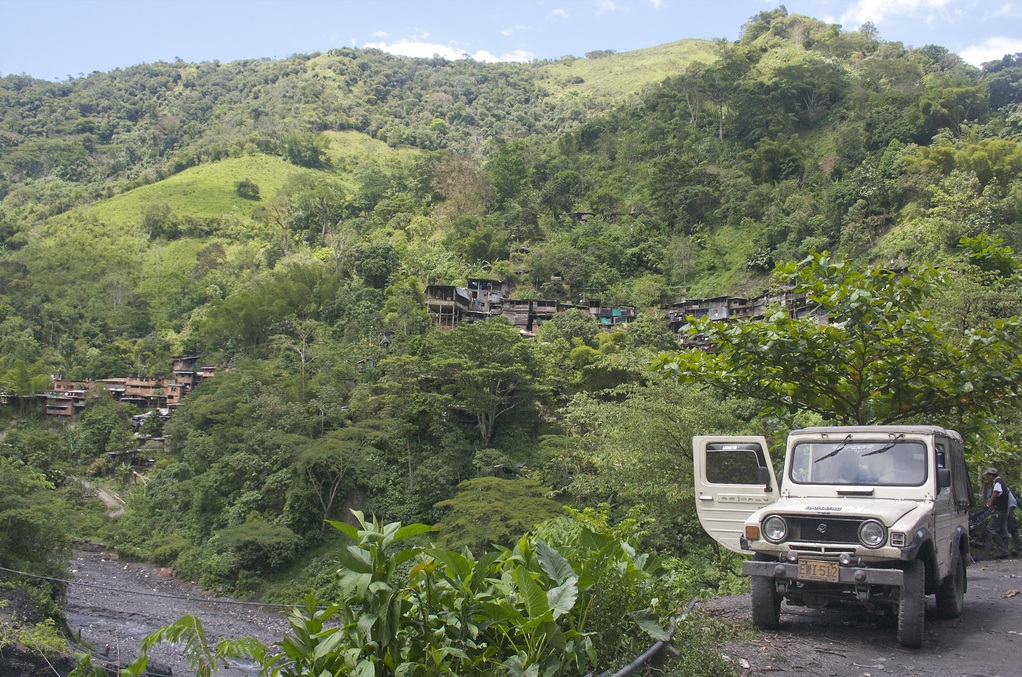Argentina upholds glacier protection law, a Colombian volcano is still rumbling and a scientist says northern Chile is due for a large earthquake.
ARGENTINA
Argentina’s “glacier law,” designed to protect water reserves and limit mining activity on and near glaciers in the country’s Andean west, was upheld by the Argentine Supreme Court this week. In 2010, key articles were suspended in San Juan province after complaints from the mining industry—including Barrick Gold Corp., the world’s largest gold miner, which operates the Veladero mine in San Juan and the $5 billion Pascua-Lama mine nearby. This week’s decision reaffirms the glaciers’ status as “public patrimony” (or bien de carácter publico) and paves the way for an inventory of the country’s glaciers, which according to Argentine scientists are all retreating.
BOLIVIA
Community nut farming in Bolivia is being researched by the Centre for International Forestry Research (CIFOR) to improve models for smallholder and community sustainable forest management. CIFOR points out that the Forest Stewardship Council (FSC)—which certifies products that come from responsibly-managed forests—has more difficulty formalizing the ways communities manage forests as compared to commercially-run forests. On top of that, Bolivian law would impose ‘no-take’ zones for conservation purposes if the forests were to be FSC-certified, which renders the issue more complex.
Bolivia has lost more than 30,000 square miles (8 million hectares) of forest in 35 years, according to a report from the country’s Forest and Land Authority (ABT).
CHILE
Northern Chile is due for an earthquake, says Onno Oncken, director of the geodynamics center at the German Research Center for Geosciences in Potsdam. According to Oncken, northern Chile has been accumulating energy since 1877. His department has been collaborating with two Chilean universities to operate seismological monitoring stations in northern Chile. He predicts the energy will be released in the form of an earthquake within ten years.
Chile has expanded its Antarctic science budget by eight percent to reach $3.6 million and will mobilize 20% more resources to its Antarctic science program. In 2005, just 15 projects were underway at the Chilean Antarctic Institute (INACH). This year, 229 researchers from 31 universities submitted proposals to work on Antarctic studies in Chile.

COLOMBIA
Researchers at Colombia’s Universidad Nacional are working to improve titanium. By characterizing the metal’s structure on a microscopic level, doctoral student Jorge Andres Garcia hopes to identify which processes are most damaging during the material’s manufacture.
El Nevado del Ruiz, an active volcano 180 kilometers west of Bogota, is unstable and scientists say another eruption could be days or weeks away. The volcano produced heavy amounts of ash on June 30 and the 52 families evacuated have not yet returned. In 1985, Nevado del Ruiz erupted and caused a torrential landslide which engulfed the municipality of Armero, killing 25,000 people.
Colombia is the world’s leading producer of emeralds and most of their mining is controlled by Victor Carranza. Al Jazeera’s People and Power series takes a look at the “Emerald Tsar” and the imminent war over the emerald industry.
CUBA
A cholera outbreak in Cuba has killed three people and has affected dozens of others, exacerbated by high temperatures. Cuban health officials say they have the situation under control.
PERU
Peru needs to monitor its glaciers, says UNESCO (United Nations Educational, Scientific and Cultural Organization). “We have spoken with Peruvian government institutions, and there is no sufficient monitoring system to tell us the current trend in glacier shrinkage, and its consequences,” said Anil Mishra, a specialist in hydrological systems at UNESCO. Peru’s Cordillera Blanca glaciers have retreated 30% in the last 40 years.
